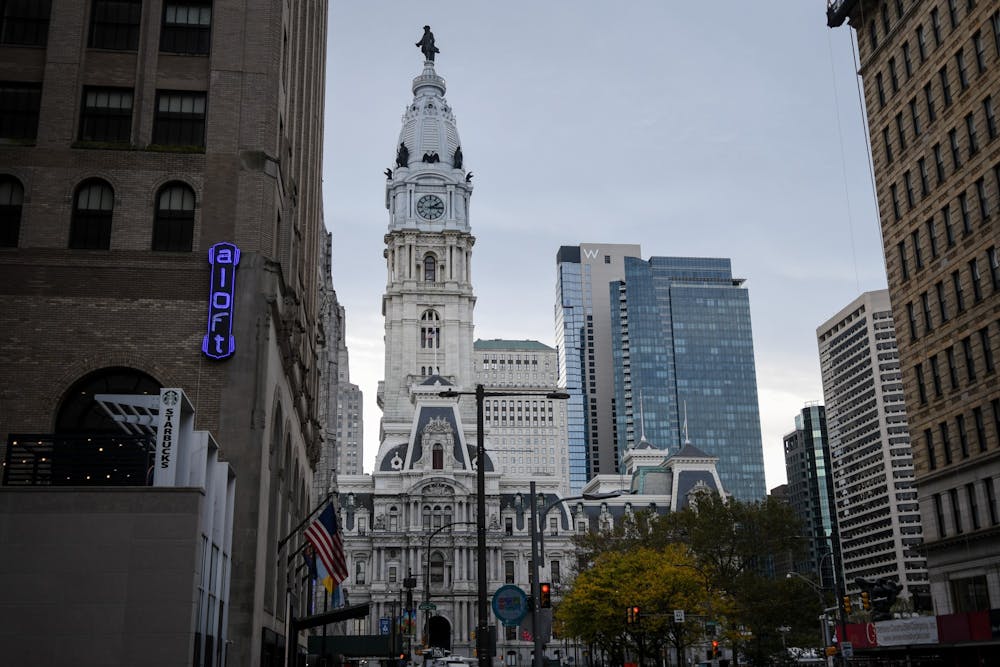The COVID-19 pandemic has been an inescapable plight for all of us over the last year. Looking back at my Snapchat memories from March 12, 2020, I don’t think anyone could have anticipated that we would still be far from normal a year later. I know for sure I never expected to be attending Penn online my first semester, let alone my entire first year of college. However, for most of us, our understanding of the pandemic has likely been very personal, reflected in the experiences, jobs, and lives we lost out on.
Nevertheless, this pandemic has not only affected us personally, but has shaped every facet of the way our societies function worldwide. The most informed members of the “Civic Ivy” can likely tell you how many times Dr. Anthony Fauci has changed his stance on “mask protocol,” or the various vaccines that are currently approved, and how they were funded by Operation Warp Speed. However, the real frontline of pandemic politics happens on the local level. So the question becomes: what did different cities and states do right and wrong in the pandemic, and how does our local government’s COVID-19 policies hold up?
In Philadelphia alone, 3,231 people passed away from COVID-19. Though striking, this number is thankfully small when compared to New York City’s 30,564 and Chicago’s 10,144, even when respective population sizes are taken into account. The relatively low mortality rate in Philadelphia was attributed to early lockdowns last March. Nevertheless, while lockdowns were vital precautions early on, strict Pennsylvania and Philadelphia guidelines have put enormous tolls on the city’s economy, and particularly on small businesses.
As of December 2020, approximately 30% of the Philadelphia workforce had filed unemployment claims with Pennsylvania. These claims were being disproportionately filed from both communities of color and those with low unemployment rates pre-pandemic. The strict lockdowns also endangered the long-term statuses of many small businesses in the city. Between March 1 and July 10 of last year alone, 252 small businesses in the city permanently closed their doors. While the city did offer grants to restaurants and gyms this past January, it did not compensate for elusive timelines around reopenings and a lack of information about how to increase indoor business capacities.
While the city of Philadelphia was lucky to not have taken as severe of an economic or health hit as cities like New York, poor implementation of policy now could have a drastic impact on how long the pandemic continues to affect the city. As we approach the end of the pandemic, priorities have switched from managing business occupancy to vaccine distribution. In many low-income communities with high rates of underlying health conditions, the roll-out of vaccines can literally be the difference between life and death.
Despite this fact, when the city had the opportunity to open its largest vaccination distribution site yet in early January at the Pennsylvania Convention Center, it chose to contract out to a group called Philly Fighting COVID, made up of Drexel college students and graduates. The company became for-profit quickly after the city’s sign-on and mismanaged thousands of vaccines intended for those with underlying conditions in Philadelphia. The distribution was so out of hand that it led members of the Philadelphia City Council to launch an investigation into those involved.
Both the Philadelphia and Pennsylvania governments at large are not distributing vaccinations at a rate comparable to many other localities. Connecticut, for example, is taking an age-based approach to allocation — rather than the underlying conditions method used by New York and Pennsylvania — and is ranked in the top four states for vaccine distribution. This has resulted in 85.45% of vaccines being administered, significantly higher than 74.15% in Pennsylvania.
In a country obsessed with the sport of national politics, it’s easy to allow the current state of the COVID-19 pandemic and its impacts to devolve into a Democrats versus Republicans blame game. While mainstream media may try to convince you that the vaccine should be “credited” to the Biden or Trump administrations, the reality is that the direct impacts of pandemic policy are much closer to home. This crisis has shown Americans just how vital it is to pay attention to local politics and how we should hold both city and state governments accountable rather than let them fly under the radar.
Our very present reality — the liberties we have on campus next fall — rests largely in the hands of the Philadelphia city officials. More importantly though, the lives of millions of people who also call this community home are dependent upon those same policymakers. Whether or not they have jobs, whether they get access to health care, whether they are able to be vaccinated. As residents of the City of Brotherly Love, we have an obligation to not only be conscientious of how our actions affect our neighbors but also to remain vigilantly informed on the way the government’s actions do so as well.
LEXI BOCCUZZI is a College first-year studying philosophy, politics, and economics from Stamford, Ct. Her email is abb628@sas.upenn.edu.









